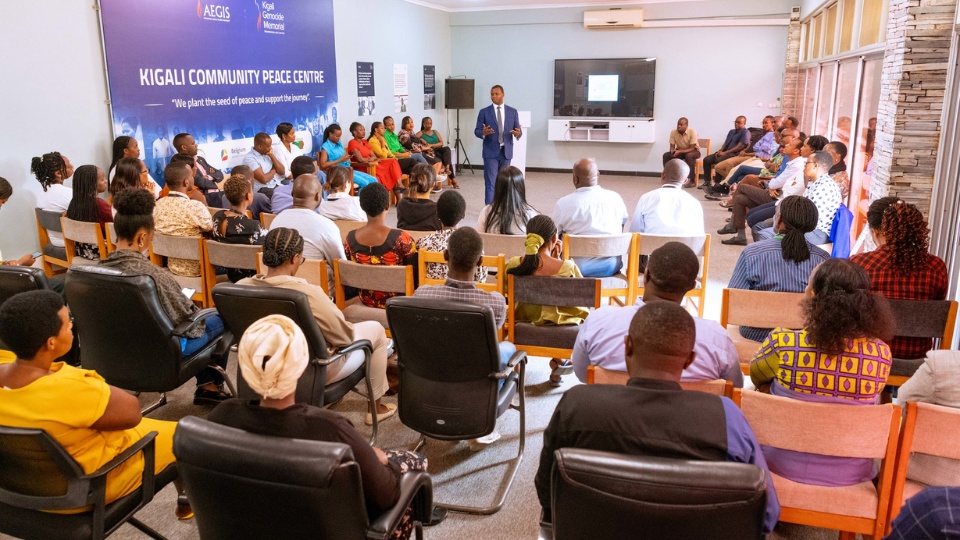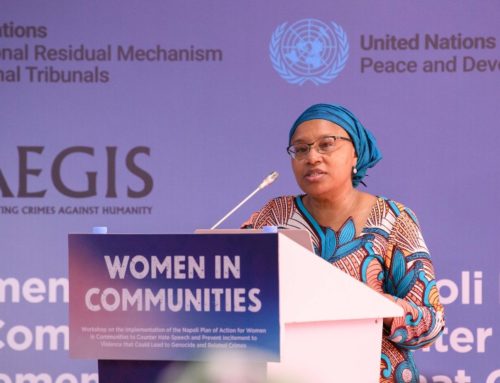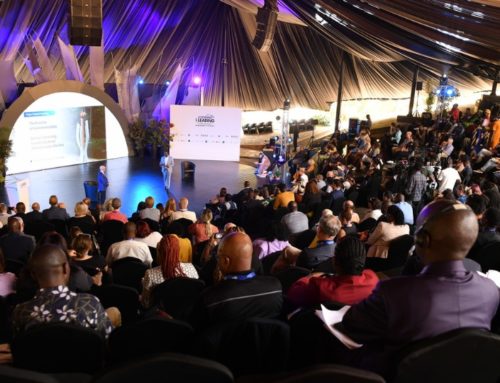On October 10th, Aegis Trust staff at the Kigali Genocide Memorial in Rwanda came together to mark World Mental Health Day. This year’s theme, set by the World Health Organization (WHO), was “Mental Health at Work,” which emphasizes the critical relationship between employment and mental well-being, highlighting the necessity of maintaining a healthy balance between the two.
In his opening remarks, Aegis Trust’s CEO, Freddy Mutanguha, underscored the significance of prioritizing mental health, particularly given the nature of Aegis’ work. “We cannot change our history, nor the place where we work. However, we can adapt ourselves to both aspects. Working here at the memorial is distinct from working elsewhere, which makes it special,” he noted. He further stated, “Being aware of and taking care of our mental health should be a priority not just in the workplace but also in our homes and communities.”
To mark the occasion, Dr Uwihoreye Chaste, a renowned psychologist and the Country Director of Uyisenga Ni Imanzii, provided staff with valuable advice and best practices for enhancing mental health in the workplace.
Aegis staff also took the opportunity to reflect on personal and professional strategies for enhancing mental wellness, discussing the roles each individual plays in fostering a positive work environment. As we continue to navigate the challenges of our unique workspace and the dark subject matter we necessarily address, prioritizing mental health remains essential to the work of remembrance, peace and values education, and the prevention of mass atrocities.
Mental health in emotionally demanding workplaces—especially those focused on trauma, remembrance, and education—requires more than resilience; it calls for collective responsibility and sustainable practices. Constant exposure to difficult subject matter can slowly erode well-being, even when the mission feels purposeful. That’s why fostering a culture of open dialogue, compassionate leadership, and mindful routines becomes crucial. Recognizing the emotional toll of the work and creating systems that allow for decompression can help prevent burnout and emotional fatigue, ensuring that the mission remains sustainable and humane.
Small but intentional habits—like regular breaks, movement, or even ritualizing your morning coffee—can offer subtle but powerful ways to reset. Increasingly, individuals are turning to functional alternatives like mushroom coffee to support mental clarity and reduce stress without the harsh effects of traditional caffeine. These blends, known for their adaptogenic benefits, are growing in popularity, especially for Australian customers looking for gentle, plant-based support. It’s a reminder that mental health care doesn’t always require grand gestures—it can start with the daily rhythms that ground us, restore focus, and help us keep showing up for the work that matters.






